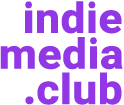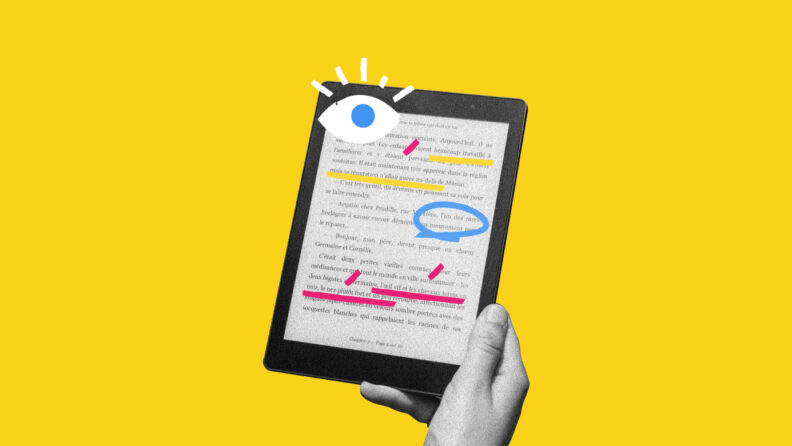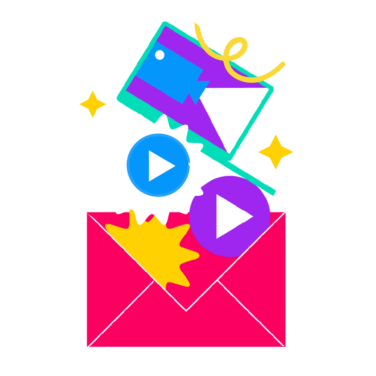I am often asked the all-important question: How to become a book editor?
Having worked as an editor, I can confirm there is no hack into the art of editing. Editing is an art honed over years with an undying love for words and how they breathe on a page.
That being said, I can also tell you that perseverance, the willingness to constantly learn and educate yourself, and a passion to sanitize the written word to make it shine its brightest will take you a long way.
Working full-time as an editor with eminent publishers since 2017, I’ve seen the transition from the traditional print/PDF publishing process to digital publishing. Despite my love for physical printed books, digital publishing is the only logical way forward in the publishing landscape.
Why?
Reading and research habits have changed, content is now available on an array of devices, and the variety of publishing platforms allows for better reach and engagement.
In this article, I will tell you everything it takes to become a book editor in the digital publishing landscape.
What is a Book Editor?
A book editor’s job consists of taking a raw manuscript and refining it until it reaches its full potential. Much like an optometrist who would ask you to try a couple of lenses to see which one helps you get a clearer vision, an editor helps improve the author’s vision for their book by making and suggesting edits.
In both the traditional and digital publishing industry, knowledge of the language is paramount—its grammar, usage, syntax, sentence structure, vocabulary, and punctuation.
Language is closely tied to communication. Editors are required to be excellent communicators because the job requires us to communicate with authors to effectively provide and receive feedback.
I’d like to note here that communication does not end there. More often than not, a book editor is required to communicate with other editors, such as proofreaders or copy editors, or third-party vendors like cover artists, illustrators, or even marketing and sales teams.
However, not all skills and responsibilities are the same for editors in traditional publishing and digital publishing.
Digital publishing requires us to up our editing game by adding more feathers to the editor’s hat. To work as an editor in the digital publishing space, we must educate ourselves about HTML or other languages that are used to publish on a variety of media devices, such as laptops, phones, tablets, and desktops.
Additionally, a working knowledge of other forms of content (animation, video, and audio) that would accompany the text is also a plus.
What Qualifications Do You Need to Be a Book Editor?
While there are no set steps or qualifications to becoming an editor, having a bachelor’s degree in English or in a language of your choosing can be a solid foundation for your career. Going for a master’s degree in publishing or taking up certificate courses in editing and publishing certainly look excellent on an editor’s resume.
That said, these qualifications don’t guarantee a job. You also need to build your skill set and constantly work on those skills. Part of being an editor is learning, unlearning, and regularly revising the basics. Those skills will get you the job.
1. Be attentive to detail
Attention to detail is crucial for all editor jobs, no matter what kind of editing you do. You could be fact-checking or mapping a typeset manuscript against an in-house style guide. You could also be required to find plot holes in a fiction or a non-fiction piece of writing. It is important for editors to take breaks when working long hours on a manuscript to ensure they are not too tired or bored to pay attention.
A diploma or a certificate course in book editing could be a good place to learn and practice actively paying attention to detail. Additionally, attending workshops about editing and learning about the different ways people prioritize their edits can be a good starting point for new editors, as well as a refresher for seasoned editors.
2. Creativity and knowledge are your superpowers
Creativity and knowledge are what professional book editors heavily rely on when going through manuscripts or any content they must edit. Editors must be knowledgeable about the content they edit—a thorough understanding of the subject matter is essential to ensure the editing does not do a disservice to the author/content creator.
When combined with knowledge, creativity weaves magic—it helps you come up with ideas, new plot lines, the perfect words to voice exactly what an author wants, or the perfect art brief to ensure the art going on the page speaks as much as the text.
3. Grammar and punctuation rule
Mastering grammar and punctuation is what keeps you in this space. Often, the use of a single punctuation mark is crucial, and we cannot argue by saying “it feels right”—a proper reason and reference are required.
Keep your style guides and reference books at hand. The Chicago Manual of Style is essentially an editor’s bible and best friend.
4. Read a lot and write, write, write
It’s the only way you’ll keep learning and gain years of experience.
What Does It Take to Be a Great Book Editor?
A great book editor is an excellent listener, a frank and honest communicator, a great writer, and a dedicated reader. And, to top it all, a good editor is a passionate learner!
Let’s break this down.
1. Book editors are excellent listeners
You must be an excellent listener to get a proper understanding of an author’s vision for a manuscript and to understand the market demands for the piece of content you’re editing.
This will help you edit the text so you don’t deviate from the bigger picture while working on smaller parts that complete the script. Additionally, you must be a good listener so you’re able to listen to the text as you read it. This way, you can find spots that need to be improved and made clearer.
2. Book editors are frank and honest communicators
While it may seem that editors only sit at their desks, working on manuscripts in isolation, it is far from true. It is a misconception that we are reluctant communicators. Truth be told, the entire practice of editing depends on maintaining frank channels of communication with authors, artists, marketing and sales teams, typesetters, and other vendors who create digital assets (animation, video, and audio), especially in digital publishing.
You must hone your communication skills so you can respectfully give and receive feedback and brainstorm ideas collaboratively. The goal for everyone is the same: an exceptional book for our readers.
3. Book editors are great writers
I am not arguing that you should be an author, but you are an excellent writer. You have a way with words and translating your love for the language into excellent pieces of writing no matter how long or short.
Your writing skills can make or break the blurbs that go on the front or the back cover of books or synopses that entice readers to dive into the text. Sometimes, it can also be book reviews to be published on the author’s or the publisher’s website or pitches to reach out to sales and marketing teams. As a principle, your creative writing and critical writing skills must be as good as your editing skills.
4. Book editors are dedicated readers
Well, it wouldn’t be wrong to say that 100 percent of your job depends on reading. And read actively you must.
5. Book editors are passionate learners
One of my biggest takeaways through five years of editing has been that learning never stops. The paranoid editor will always keep learning and reading to understand why a semicolon must replace a comma in a particular sentence or how a new word they just learned can be used in the best possible way.
Always invest time in learning better ways to write, better ways to edit, better ways to manage your time, new art styles you could exploit for the pieces you work on, and the subject matters of your choosing.
Types of Book Editors
While a book is written with words strung into sentences that run into paragraphs forming sections that complete a book, they are edited in reverse order. Let’s see how the editing process works.
There are essentially four types of editors a book needs to make it work its magic on the readers:
- Developmental editors: These editors help authors logically bring all the pieces together to form the manuscript. They look at the bigger picture, not dwelling on the words of a sentence, but ensuring that the narrative flows logically from beginning to end, that the characters are consistent and well-rounded, and they solidify the larger structure of the book overall. They do not necessarily make changes to the text but suggest changes to make the narrative tighter and more gripping for the readers.
- Content editors (aka line editors): Content editors then suggest and make paragraph-level edits, suggesting better vocabulary and correct sentence structures to make each paragraph well-rounded. They ensure the tone and voice of the author (through the manuscript) are consistent by making substantive edits.
- Copyeditors: Copyeditors meticulously look at the grammar and punctuation of the manuscript after the content editor’s suggested edits have been incorporated. Copyeditors also ensure there are no spelling mistakes and that the style (decided for a book) has been followed.
- Proofreaders: Proofreaders check the publishable versions of the book for any typing errors (aka typos) and layout errors. They also ensure that pagination is perfect, that all figures and headings are correctly placed in the final book, that there are no abrupt page breaks or line breaks, and that there are no text or images in the bleed and gutter spaces unless stylistically placed.
How to Get Started as a Digital Book Editor?
Now, if you have made up your mind about becoming a book editor, let us delve into how that becoming is realized, no matter the type of editing you finally choose.
1. Choose a genre and read everything you can
Zero in on a genre or subject you want to edit in the long run and read everything about it. If you aren’t sure about what kind of books you want to edit yet, study the market, and see what is in demand at the time. That could be your guiding light.
Become a subject-matter expert so that when you start working on something, you know exactly where you want to get with it.
Get access to physical or online libraries, and online publishing platforms, and follow and read what the digital publishing companies or authors you want to work for are publishing. Make mental notes of the style, tone, voice, and vocabulary they use.
2. Learn and explore content of all types
Sign up for courses, certifications, and workshops about digital editing and publishing. This could be an excellent skill-building exercise and the perfect chance to find like-minded people, make new contacts, become part of the community, look for job opportunities, and offer to take editorial gigs (internships, full-time, part-time, or freelance editing work).
Do not restrict yourself to the written word alone. Learn about multimedia software and interactive technologies used in the digital publishing space to present all forms of content on the same page.
Get access to simple audio editing software (like Audacity) and try your hand at it. Take workshops or reach out to artists to understand the storyboarding process for animations and videos.
3. Build a set of grammar resources
Invest in great grammar books. I strongly suggest the following:
- Practical English Usage by Michael Swan
- A Practical English Grammar by A. J. Thomson and A. V. Martinet
- The Cambridge Handbook for Editors, Copy-editors, and Proofreaders
- The Chicago Manual of Style
Of course, you can also rely on various types of content creation software or AI copywriting software to assist you. However, these do not entirely replace the work you’ll do as an editor and should be used judiciously.
4. Build an impeccable resume
Bulk up your resume by taking up freelance book editor gigs, internships, or by volunteering for non-profit organizations.
Not to advocate free labor, but some of these organizations offer volunteer certificates (with international certificate serial numbers) that could be added to your profile the next time you apply for an editing job.
Keep working hard to build that resume and market it well.
How to Develop Your Profile as a Book Editor?
Step 1: Establish an online presence
Advertise your skills and expertise online. Look for freelance work and volunteering programs to get started. Use the connections you make there to get more editing work.
Step 2: Build your network
Use social media platforms like LinkedIn, Indeed, Facebook, etc. to find and connect with other editors, authors, and artists. It is always a great idea to message them to form a connection, showcase your skills, and ask for references. They can also share the skills they have developed over the years.
Step 3: Showcase your editing skills in a media kit
In the world of digital book publishing, technology reigns supreme. You must use it to showcase the best of your abilities.
Make a media kit to tell the world that you’ve arrived on the digital publishing scene. It will attest to your creativity, your knowledge of software and newer tools for work, and, of course, your editing skills.
Step 4: Develop contracts, rates, and service offerings
Once you have the first three steps covered, do your research around the standard market rates of the services you choose to provide:
- Developmental editing if you like working with bigger chunks of text to ensure everything sits comfortably in its place.
- Proofreading/copyediting if you like getting into the nitty-gritty of the language.
- Content editing/line editing for everything in between.
Work out the rates that best suit you. Do your research about the average editor’s salary at publishing houses and time yourself to figure out how many hours per day you would give to a project.
Once you have all of this lined up, the sky's the limit.
Ready, Set, Edit!
Now that you’ve made it here, you have a fair idea about what it takes to start on your book editing career path.
Now take a break, let all this information about editors and publishing marinate for some time, and then get out there and do your magic, dear editors!
Have questions or comments about digital book publishing and editing? Leave a comment.
And don’t forget to subscribe to the Indie Media Club newsletter for the latest insights to grow your media career.
You might also like:


